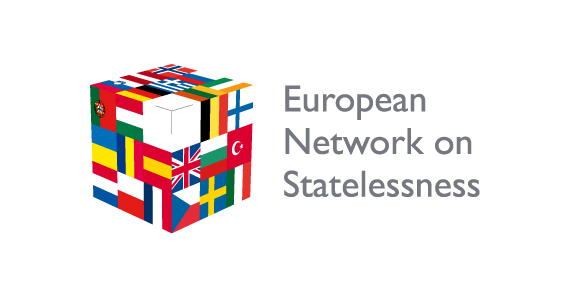A big step for Malta in 2019!
Once again, aditus foundation worked closely with the European Network on Statelessness (ENS) to research and compile comparative information on statelessness in Malta in the 2019 Statelessness Index.
One great outcome of our advocacy work is the accession by Malta to the 1954 Convention relating to the Status of Stateless Persons on 11 December. The 1954 Convention, which now has 94 parties, establishes a framework for the international protection of stateless people and is the most comprehensive codification of their rights. To be stateless is not to be recognised as a citizen by any state under the operation of its law. As a consequence, a stateless person cannot enjoy her fundamental civil, political, economic, cultural and social rights.
As we highlighted before, this is a welcome development in Malta’s approach to protecting people affected by statelessness and comes following the Government’s pledge at the UNHCR High Level Segment on Statelessness in October, as well as our joint advocacy efforts with UNHCR Malta.
Nevertheless, significant concerns regarding law, policy and practice remain.
Indeed, Malta has made some reservations upon its accession to the 1954 Convention. These reservations to Article 11 (regarding stateless seamen), Article 14 (regarding artistic rights and industrial property) and Article 32 (regarding facilitated naturalisation) prevent these provisions from having any legal effect. It is worth noting that pursuant to its reservation to Article 32, Malta preclude stateless people in Malta from a facilitated route to resolving their statelessness through naturalisation. This is not very much in line with the purpose of the Convention.

A stateless person becoming Maltese…
How can a stateless person become a Maltese national? Keep in mind that a stateless person might not be in a position to marry a Maltese national…since marriage is dependent on legal residence! The Maltese Citizenship Act says that a stateless person born in Malta may apply for naturalisation after five years’ residence subject to other eligibility requirements. Furthermore, a stateless person with a parent who is a Maltese national may naturalise after three years’ ordinary residence provided certain conditions are met. Apart from that, Malta provides very limited protection for stateless people, lacks any mechanism to identify and determine statelessness, and no stateless protection status.
We urge the Government to establish in law a statelessness determination procedure and protection status, under the authority of the Office of the Refugee Commissioner. This would need to be in line with UNHCR Guidance and fulfill the rights enshrined to stateless persons under the 1954 Convention. These include the granting of a residence permit, right to work, study and facilitated naturalisation.
Furthermore, Malta is still not party to the 1961 Convention on the Reduction of Statelessness. The 1954 Convention is designed to ensure stateless people enjoy a minimum set of human rights. With the 1961 Convention, the aim is really to prevent statelessness and to reduce it over time.
We encourage the Government to acceded to the 1961 Convention as there are only some safeguards in Maltese law as for prevention of statelessness.
In the Maltese Citizenship Act, there is a non-automatic provision for children born stateless in Malta. They can acquire citizenship after five years’ residence. However, there are no reports of this provision ever having been used.
Also, the Citizenship Act deems foundlings to be Maltese from birth. Yet, the provision states “until his right to any other citizenship is established”. Unfortunately, this wording does not preclude from possible statelessness later on. It is only in adoption cases that safeguards against statelessness are provided in law and policy.
Another provision of the Act allows for Maltese nationality to be automatically conferred to children born when parents are Maltese citizens. The concern here lies in the discriminatory limitations in the Act. Indeed, in the case of unmarried parents, a child born in Malta on or after 1st August 1989 shall only automatically become Maltese if the mother is a Maltese citizen. There is an obviously risk of statelessness if only the father is Maltese.
We urge the Government to consider amending the law so that all children born on its territory who would otherwise be stateless acquire nationality at birth, regardless of the status of the parents. Also, we would like to emphasise on the need to address discrimination in the acquisition of nationality and practical barriers to birth registration by amending the law in line with the 2011 European Court of Human Rights judgement and implementing national campaigns and promotion activities on birth registration.
Stateless population in Malta?
As underlined in the 2019 Statelessness Index, there is very limited disaggregated population data on statelessness in Malta and there is no procedure for identifying and determining statelessness in Malta. The Malta Police Force and the Office of the Refugee Commissioner use the statistical category ‘nationality not known’ and record data on refused asylum-seekers who cannot be returned, but do not have a specific ‘stateless’ category. The Government does not publish data on stateless people in detention and stateless is not systematically recorded across government agencies.
We highly recommend the Government to consider improving the identification and the recording of stateless individuals.
These are just some of the issues covered in the Statelessness Index. For quite some time now, along with our partners at the European Network on Statelessness, we have advocated for Malta to intensify its efforts on statelessness and for it to bring significant changes regarding the everyday challenges faced by stateless people in Malta.
What is left for us to do now is to work closely with the Ministry to ensure the very best implementation of the 1954 Convention into Maltese Law.

